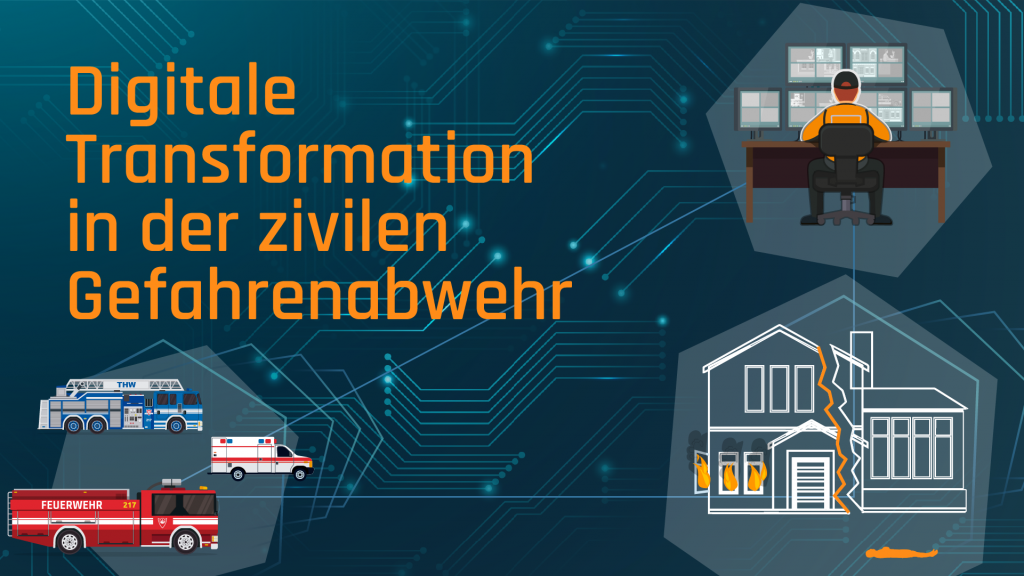Intelligent technology and digital systems are shaping our everyday lives in many areas today. But what about the digital transformation in civil security? Members of fire departments, aid organisations and the Federal Agency for Technical Relief are dissatisfied with the digital development in their organizations. This is the result of a recent study on digital transformation in civil defense. In order to identify the current status, needs and obstacles, the Paderborn-based "safety innovation center e.V." launched a study almost a year ago on behalf of the Association for the Promotion of German Fire Protection (vfdb) and in cooperation with the C.I.K. (Computer Application and Integration in Construction and Planning) specialist group at the University of Paderborn.
The results of the study are clear: More than half of the respondents have the impression that the topic of "digital transformation" is "never" to "rather rarely" discussed in their organization. Around 95 percent (rather) see the need to drive forward digital transformation within their own organization. Although social media channels, for example, are already used relatively frequently, they are predominantly used for more mundane tasks of citizen communication and less for situational awareness and communication in larger operations.
The use of private devices and software for civil security purposes is also widespread, as 62 percent of respondents indicated. Because appropriate equipment is not available at their institution, more than 40 percent use private hardware or software even on a daily basis.
Preparing for the future
The study also provides concrete answers as to how digital development can be driven forward and what is hindering it: "From the point of view of the study participants, what is seen as necessary are, among other things, overlapping interfaces for compatible IT systems and hardware," explains Torben Sauerland, one of the authors of the study. For the respondents, the main obstacles to digital transformation were, for example, a lack of funding, complex procurement processes and a lack of IT expertise. In a workshop on the study, the participants therefore developed various approaches to solutions: For example, improving the accessibility of the civil security IT market, model regions with pilot operations and central support were named as possible options for action.
"The study must be an urgent reminder for all of us to intensively promote digitization in emergency response, so that we as emergency services can meet the challenges of the future," says Dirk Aschenbrenner, vfdb President, Director of the Dortmund Fire Department and lecturer at the University of Paderborn, about the results. "The number of cases and the severity of events are increasing - keywords: Forest fires and severe weather. But the Corona pandemic also shows us how much and where digitalization is lacking."
Around 650 participants, mainly from fire departments, aid organizations and technical relief organizations, took part in the online survey. The study was sponsored by the SafeInno Foundation and the Björn Steiger Foundation.
All results and the complete study are available at: www.blaulicht.digital

